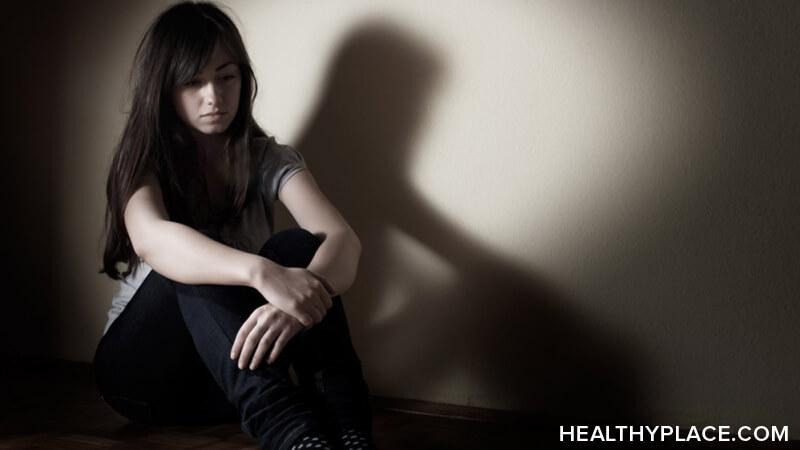I Feel Like a Burden: Is This Self-Stigma or Reality?

Confession time: I feel like a burden because of my mental illnesses. It's perhaps ironic I've previously written about how mental health stigma makes talking about mental illness feel like a confession, and, now, here I am—confessing. I've never said the words aloud, but feeling like a burden is pretty regular for me, and I don't think people would expect it. So, yes, this feels like a confession. And I'm also questioning if this is self-stigma or reality.
What Does Feeling Like a Burden Mean?
When I say I feel like a burden because of my mental illnesses, what does that mean? Why do I think this?
I think one of the reasons people who struggle with mental illness can feel like a burden is because we know the weight of these struggles and don't want to place them on others, even when others are offering to share the load. I know how heavy my depression, anxiety, and suicidal ideation are, and I've seen how I impact others when I share about them. Sharing about the dark parts of mental illness is usually met with concern, fear, sadness—all of which are valid. But all I see in those moments is a spreading of my pain and struggle. My burden becomes theirs and worsens their situations, even if they try to reassure me otherwise.
My goal is to be completely honest when my mental health is at its worst, but with the acknowledgment that, in those moments, I'm rarely seeking help or even reactions. It's more to have it beyond me, out of my head. At the same time, I feel it's unfair of me to ask people to stifle their own emotions. Feeling like a burden is ultimately about feeling like an inconvenience or like I'm putting someone out with my openness. And then there's the matter of friends not being therapists.
Is Feeling Like a Burden Self-Stigma, or Am I Actually a Burden?
I'll be honest with you. Answering this question—is feeling like a burden self-stigma or reality?—is very difficult for me. Knowing what I do about stigma, I could argue that telling myself I'm a burden is self-stigma because it fits under the category of self-deprecating thoughts on the basis of mental illness. It makes sense logically to see it this way. Yet, seeing the reactions of those around me when I'm open about how bad my mental illnesses can get, my brain registers it as reality instead. My mind takes it as evidence of truth and that I actually am a burden.
I don't have an answer or special insight on this one. Rather, this is more about saying, if you feel this, I get you. It's hard reconciling these sorts of thoughts, but I guess it's another challenge to overcome. Maybe by talking about this sort of question, we can find ways to overcome these feelings.
APA Reference
Barton, L.
(2021, August 23). I Feel Like a Burden: Is This Self-Stigma or Reality?, HealthyPlace. Retrieved
on 2026, January 21 from https://www.healthyplace.com/blogs/survivingmentalhealthstigma/2021/8/i-feel-like-a-burden-is-this-self-stigma-or-reality
Author: Laura A. Barton
Thank you for the honest article. I don't think others can understand the feeling, and having it written off as incorrect when our situation isn't even considered is hurtful I think.
There's no good, simple answer I think. It's something I'll have to work with my therapist on.
Thanks for your comment, Lynn. Feelings like this are definitely difficult to understand all around, and I think you're right. Working through them with a therapist can be a great way to begin to do that. I wish you the best!
This is a beautifully honest read that many will surely resonate with and take comfort in. Thank you for bravely sharing and discussing this topic. When it comes to deeply personal things, personal as in rooted to our being, it can be extremely difficult to know what is real and coming from us and what has been taken on or placed on us by society or others. With this particular kind of question, feeling like a burden, gentleness and compassion are the most important foundation. From that place, you can ask your questions and see what comes up.
Thanks for your words of advice in this comment. You're right: gentleness and compassion are definitely great places to start. I know personally speaking, it can be hard to make space for those with myself. Beginning with these steps seems like as good a place as any!
